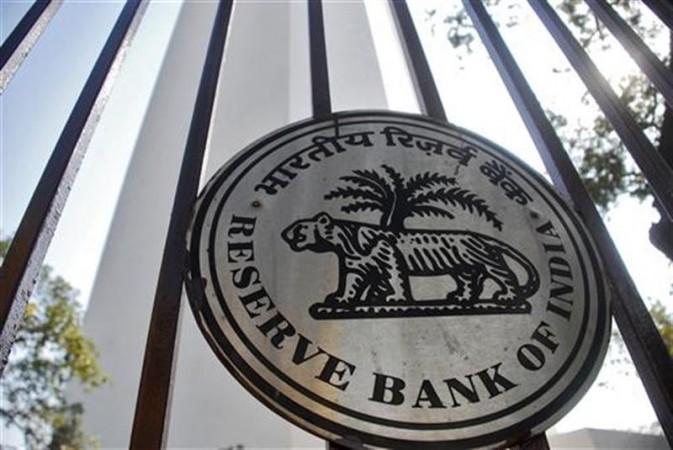
The allegations of major private sector banks - ICICI, HDFC, and Axis - indulging in money laundering activities have shocked the nation. If found true, it will damage the image of the financial institutions, and the Reserve Bank of India (RBI), which controls them, has to be partly blamed for letting banks indulge in illegal activities right under its nose.
Private banks - HDFC, ICICI and Axis - were allegedly caught red-handed in Cobrapost's nation-wide undercover investigation called Operation Red Spider, and these major financial institutions were willing to turn black money into white. Cobrapost shared the video footages of the operation to reporters at a press conference and the footages are also available on its site.
The government and RBI have ordered an inquiry to take stock of the matter following the allegations by Cobrapost website.
"The RBI is collecting information, and the RBI has been in touch with the banks. At the moment, that's all I can say," Urjit Patel, deputy governor of the RBI, told reporters on Thursday.
Meanwhile, the banks which were allegedly caught in the sting operation, claimed that they have been abiding by the rules and have ordered for investigation.
If the allegations turn out true, the private sector banks would be under the scanner as they could have approached RBI for funds instead of indulging in illegal activities.
In the meantime, the RBI should also be blamed as it regulates all the banks being the country's central bank. It holds the cash reserves of all the banks; controls the credit operations and banking system through licensing and inspection; and acts as bankers' bank by lending money during the time of crisis.
Moreover, some changes in its policies have led to a delay in dealing with individual cases and complaints related to both public and private banks.
For instance, the RBI has constituted a body called Banking Ombudsman to address grievances of all nature filed by customers of all financial institutions in the country. Customers could file complaints directly with the RBI till a few years ago, but the circulation sent out by the apex bank in 2006 scrapped that facility.
A person can't file a complaint directly with the Banking Ombudsman before approaching his/her bank first. One can approach the body only if the bank doesn't reply within a period of one month after filing a complaint, or if the bank rejects the complaint or the response is not satisfactory.
This new scheme of the RBI often leads to red-tapism, taking at least a month to approach it.
Interestingly, the allegation surfaced just a little over a month after the RBI sent a circulation to CEOs of all Primary (Urban) Co-operative Banks on Anti-Money Laundering (AML) Measures and Obligations of banks under Prevention of Money Laundering Act (PMLA), 2002.
"Prevention of Money Laundering Rules, 2005 requires that every banking company, and financial institution, as the case may be, shall identify the beneficial owner and take all reasonable steps to verify his identity," said a circulation sent by Chief General Manager-in-Charge of RBI on 28 January, 2013.
According to the rule book, an individual has to provide his/her pan card if the amount of cash to be deposited in a day is more than ₹50,000. One has to report to Income Tax authorities for cash deposit of more than ₹5 lakhs, and through Cash Transaction Report (CTR) for an amount more than ₹10 lakh.
However, the sting operation by Cobrapost found out that many private sector banks floated the rule and turned black money to white, accepting cash amounting to lakhs.
"Our investigation, conducted across dozens and dozens of branches of these banks and their insurance affiliates, across all five zones of the country, revealed these shocking facts that these money laundering practices are part of a standard set of procedures within these banks," Cobrapost Editor Anirudh Bahl told reporters on Thursday.
Cobrapost alleged that these private sector banks launder black money in the following manner:
1) Accept huge amounts of cash and invest it in insurance products and gold.
2) Open an account to route the cash into various investment schemes of the bank.
3) Do it even without the mandatory PAN card or adhering to the KYC norms laid down by the Reserve Bank Of India.
4) Split the money into tranches to get it into the banking system without being detected.
5) Use "benami" accounts to facilitate the conversion of black money.
6) Use accounts of other customers to channelize the black money into the system for a fee.
7) Get demand drafts made for the client either from their own banks or from other banks to facilitate investment without it showing up in the client's account.
8) Keep the identity of the investor/depositor secret.
9) Open multiple accounts and close them at will to facilitate the investment of black money.
10) Invest black money in multiple instruments in the names of different individuals, not necessarily drawn from among the family.
11) Allot lockers for the safekeeping of the illegitimate cash, including special large size lockers to accommodate crores of hard cash.
12) Personally come to the residence of the client to take the black money deal forward and collect the cash, even bring along counting machine.
13) Use provisions like Form 60 to deposit the illegitimate cash into the account to route it into investment.
14) Help the client transfer black money abroad through NRE (Non-Resident External)/NRO (Non-Resident Ordinary) account transfer.
Meanwhile, the money laundering allegation has taken a toll on the stocks of HDFC Bank, ICICI Bank and Axis Bank for the second consecutive day. Goldman Sachs also said that the growth of the private sector lenders could be hit hard if the allegation turns out true.
Stocks of ICICI Bank fell 3.9 percent, while HDFC Bank and Axis Bank dropped 1.5 percent and 1 percent, respectively, due to the uncertainty created by the regulatory probe into money laundering practices, reported Reuters on Friday.








